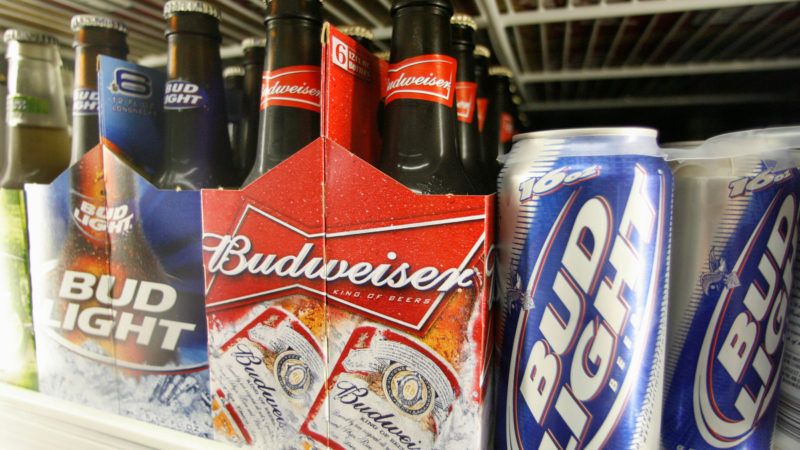Fresno Officials Vote To Restrict, Redistribute Booze Licenses
Instead of deregulating like other cities, Fresno is trying to drive small alcohol vendors out of its market

Last month, local lawmakers in Fresno, California, voted to squeeze the number of alcohol licensees in the city.
The Responsible Neighborhood Market Act, passed by the Fresno City Council and set to take effect next week, is designed on its face to take alcohol licenses away from some smaller retailers—including those that sell alcohol the council deems too inexpensive—and give those licenses to larger retailers the city council prefers.
"Part of the law requires new stores that want to sell alcohol to buy two licenses from existing stores (depending on the size of the new store, it could be more) and retire one of them to help reduce the oversaturation of licenses in Fresno," city news site GWire reports.
"Say we have a habitual bad player that keeps selling alcohol to minors, or keeps selling malt liquor for 99 cents, they've been warned and then we confiscate that license," Councilmember Luis Chavez said last month.
California lawmakers and regulators already (rightly) have the ability to suspend or revoke the alcohol license of bad actors that repeatedly sell alcohol to minors. So this Fresno ordinance is really about something else: namely, trying to boost the number of grocers in the city by cracking down on liquor stores and others that offer inexpensive alcohol for sale.
As GWire explains, council members who voted for the ordinance want to strip those licenses and offer them as a carrot "to entice neighborhood markets with fresh fruits and vegetables to come in."
Since those hypothetical markets would want to sell alcohol, the council's solution is to rob Peter (licensed liquor stores) to pay Paul (grocers selling fruits and vegetables).
But Fresno lawmakers don't want just any grocers. Chavez, for one, knows exactly the type of grocery store he wants in Fresno.
"We're trying to shrink down the supermarket model to more of a compact version of that," he explains.
What could possibly go wrong when lawmakers—rather than consumers and grocers—are the ones deciding what size and style of grocer is right for a neighborhood?
Lots, as I detailed in a column two years ago on a Tulsa, Oklahoma, effort to reduce or eliminate the number of dollar stores in the city. Dollar stores, I wrote, were "just the latest target of advocates who want to improve food offerings by limiting them."
If you're gathering that the basis of the Responsible Neighborhood Market Act stinks, you're onto something. Its impact probably will, too. Some developers, for example, worry the law could actually prevent some grocers from opening. The ordinance also protects existing liquor stores and inflates the value of their existing licenses, to the detriment of new market entrants and consumers, who will have to pay higher prices.
Even in normal times, there's little or no evidence laws similar to the new Fresno ordinance have had any positive impact.
For example, in a column last month in which I derided "the folly of lawmakers who believe they can legislate" our food choices away, I detailed the failures of various attempts to force consumers to make subjectively better food choices around the world, including Denmark's failed (and repealed) so-called "fat tax," Los Angeles' counterproductive ban on new fast-food restaurants in South Los Angeles, and a failed Minneapolis effort to force corner stores to stock fresh produce.
Many businesses that serve alcohol have been hammered during the pandemic by orders to halt or limit sales or seating capacity. Consequently, many state and local governments have rightly embraced deregulation of alcohol sales during the pandemic in order to help these vital and struggling businesses to survive.
Clearly, the bulk of the Fresno City Council believes the prevalence of licensed alcohol sellers in the city is evidence of some sort of problem. But where the city council sees a problem, I see sellers who enrich city coffers by buying licenses, sell highly taxed alcohol beverages to meet consumer demand, and employing taxpayers who contribute to the state and local economy.
In order to emerge from the pandemic, we need more cities and states around the country to get rid of senseless and burdensome regulations. But instead of doing that, local Fresno lawmakers have decided to make it more difficult for small businesses to thrive there.


Show Comments (34)